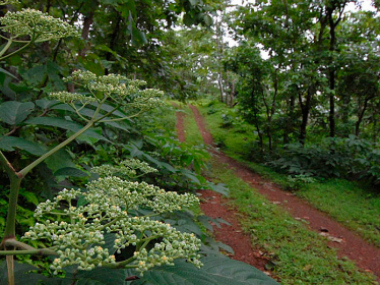Mumbai city can get overwhelming — there are over 18 million people who call this city home. Everywhere you see, there are newer buildings being built — 10 storeys, 30 storeys, 40 storeys, sky is really the limit in Mumbai. And to drive these people across the city, there are 430 cars per kilometre, according to The Times of India. Approximately 172 cars are added to Mumbai roads everyday, the length of Mumbai roads is 2000 kilometres. Despite these numbers which create a sense of claustrophobia, Mumbai is also home to the Sanjay Gandhi National Park (SNGP) — 104 square kilometres of pure green cover with a variety of flora and fauna. However, a disconcerting report in the Mumbai Mirror says that the SNGP department has sought a No Objection Certificate (NOC) from the Brihanmumbai Municipal Corportation (BMC) to deserve a portion of the forest to build a parking lot. Yes, a parking lot to perhaps accommodate those 172 cars that add to the Mumbai traffic everyday. According to the Mumbai Mirror report, SGNP proposal claims that tree would not be cut and the parking lot would be made on a barren patch of land. Stalin Dayanand, director of Vanashakti if quoted in the report: “It is a ridiculous idea to have a car park inside the national park. Instead of discouraging people to get cars, they are encouraging them. This plan must be opposed. After the car park, they will build toilets, a cafeteria and all sorts of things. This is a very bad idea and nowhere in the world do you have car parks inside national parks.” The SGNP is the worlds only surviving urban forest, it means that the ecosystem is already fragile, making a parking lot for cars in a forest area is absurd.
The SGNP is the worlds only surviving urban forest, it means that the ecosystem is already fragile, making a parking lot for cars in a forest area is absurd.
Advertisement
End of Article


)

)
)
)
)
)
)
)
)



